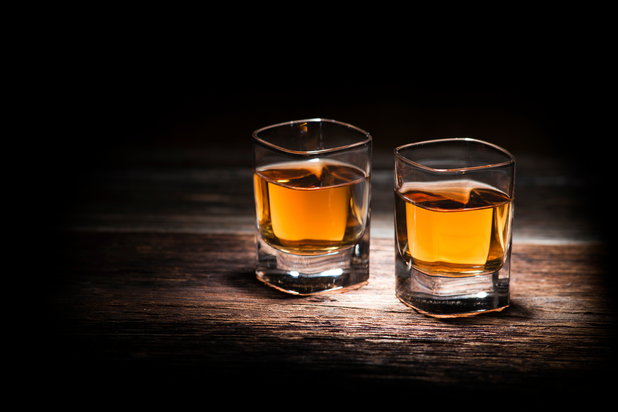In the days when our founding fathers were young, alcohol was believed to cure the sick, put muscles on the puny, put friskiness back in the old folks and generally make the world a more pleasant place to live in. America’s forefathers drank, toasted, gulped, slurped and sipped numerous shots from morning to night.
Breakfast for many began with a shot of whatever liquor was handy with another at break time, a little toddy to accompany lunch, a nice spot of sherry in the afternoon, a relaxing glass (or two or three) at dinner and then on to the local tavern for some ale, brandy and comradery with one’s peers.
Alcohol was a part of christenings, weddings, funerals, trials and Election Day parties, where candidates encouraged their constituency to vote for them with an offer of free-flowing liquor. Everybody regularly drank during their workday whether the work took place inside a building or out in the field. Harvard had its own brewery, John Hancock allegedly smuggled wine and Virginia’s governor served home brew to guests.
A National Pastime
This carefree imbibing at every occasion and non-occasion came to an end in the late 1700s when Dr. Benjamin Rush, a doctor and signer of the Declaration of Independence, took an interest in alcoholism and wrote a book titled Inquiry into the Effects of Ardent Spirits upon the Human Body and Mind. The book was published in 1785 and played a central role in shaping the temperance movement that came to be in the 19th and 20th centuries. Yet, it had very little influence on the drinkers of the day.
Early Americans were not concerned at all about who drank and how much. They thought of alcohol as a health tonic. Medical science would eventually change that reasoning, but not without many convolutions in thinking and habits occurring in the ensuing years.
Alcohol in the Workplace
Fast forward to the 1960s, with Madison Avenue types so excellently portrayed in the TV series “Mad Men” and you have a very real portrayal of the part alcohol played in the work place, at least for ad men. Many bottles of liquor were not only kept openly in executive’s office, but in secretary’s drawers, the break room and mobile pocket flasks. Bourbon, scotch, whiskey, gin, rum, vodka and mixers were freely shared among the organization’s work force whether it be a festive occasion, employee promotion, big deal signing or Friday afternoon.
“Mad Men” is a snapshot of a Madison Avenue ad agency and intends to depict the daily events of hard-charging, competitive creative types, but many other types of businesses behaved exactly like them during this period. The three-martini lunch was not only acceptable, it was obligatory in many businesses. Lawyers regularly poured drinks from their credenzas for their clients during consultations.
Today, the workplace is a different environment. Thanks to lawsuits brought against organizations large and small for hosting Christmas parties with no-host bars and a far more health-conscious populace, men and women have sobered up considerably. The rising insurance costs for employees and employers and zero tolerance for intoxication have even led many companies to promote an addiction-free workplace by including counseling and fitness centers on company grounds.
Cultural Change
Go backward in time to the late 19th and early 20th century and you find temperance ladies wielding axes and slashing countless barrels of brew. These are the same ladies parading with signs down Main Street stoutly declaring the evils of alcohol and the beginnings of one of the most crime-ridden eras in America initiated by the Volstead Act in 1919.
While there are certainly occasions today where drinking alcohol is viewed as socially acceptable—these include weddings, anniversaries, birthdays (for adults only) and other celebrations—it is also completely acceptable now to not drink at all. Stay strong in your sobriety and refrain from letting anyone urge you to drink just because the culture says to do it. Though alcohol has played a large role in history, it does not have to play a large part in yours as an individual.








